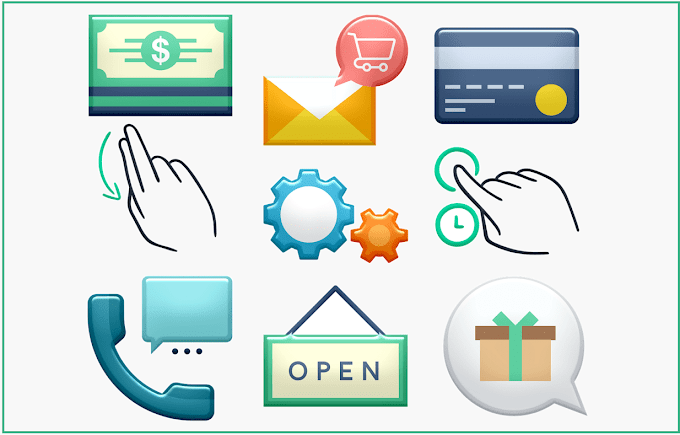
Digital process automation is one of the key tool that enables you to bring about the digital transformation of your organisation. The main objective of this tool is to improve the efficiency and effectiveness of companies and organisations and to reduce costs related to their operation. Digital process automation somewhat follows up the traditional business process management and optimisation, as well as the general concept of business process automation, which aims to support companies in building their competitive advantage in a technologically intensive business world in a much more effective manner.
Digital transformation of companies and its impact on the modern world
The digital transformation of companies envisions transitioning business models, optimising processes taking place in companies and creating a digital working environment. This in turn enables the organisation to make their operations more efficient, reduce costs related to its management and improve the flow of documents, information and the work itself within the organisation. One of the most important tools, which enables bringing about the path of digital transformation to the organisation, is digital process automation, which enables a measurable increase in the effectiveness and efficiency of the company's work while reducing the costs of its operations.
Digital process automation (DPA) tools are a natural expansion and evolution of traditional business process automation concept, the emergence of which can be linked to the particularly intensive technological development in the area of business process automation in recent years. Digital process automation focuses on the digitalisation of processes and related documentation. This enables the transfer of tasks, information, data and digital versions of documents to be automated and exchanged between all participants in a given business process.
What are the benefits of digital process automation?
The implementation of digital process automation guarantees leads not only to the information workflows and operations of the entire organisation to be more streamlined — it also ensures quick and secure access to the latest data and applicable guidelines, which can be obtained by authorised staff only. In terms of actual solutions, DPA is carried out with the help of modern enterprise IT software, which enables efficient and effective automation of virtually all processes carried out by the company. Controlling all processes via a dedicated system gives users the ability to make changes and modifications in real time, as well as to quickly and effectively implement new rules and policies, and to carry out efficient, fully optimised processes.
Top-of-the-line, state-of-the-art systems dedicated to modern enterprises enable them to automate individual tasks that make up a given process (especially the simple, repetitive and tedious ones, which are prone to human errors), as well as the workflow itself — the flow of tasks, documents and information. All stages of implementation and changes introduced in the process are properly documented and their course is updated on an ongoing basis, which ensures that all activities are carried out effectively and in line with current requirements, guidelines and assigned responsibilities. This results in efficiency fit for the digital age, as well high quality and effectiveness of processes, which brings benefits in the form of increased efficiency and effectiveness of the entire organisation.
Digital process automation and choosing the right software solution
Digital process automation is enabled by special enterprise-grade software. Currently, the most popular systems used to implement digital process automation usually comprise a single, unified and comprehensive platform with extensive set of features, which allows for efficient and effective management and optimisation of business processes, while providing advanced workflow automation and document management system functionalities.
High-end modern business process management systems are technologically advanced software suites, developed in line with the most stringent and innovative standards concerning IT solutions for business. Such systems enable companies to build virtually any business application, thus allowing them to automate both typical process scenarios, as well as more specific and peculiar ones. Top-of-the-line DPA solutions can also be easily and securely integrated with other systems already implemented in the company, including ERP, CRM and specialised IT systems in place.
The list of enterprise IT solutions currently available on the market prominently features highly functional and technologically advanced low-code platforms, which are particularly worthwhile. Such platforms allow companies to quickly and conveniently build their business applications using drag & drop method, without coding. The best low-code platforms available on the market take advantage of bespoke solutions and technologies to ensure efficient change management in real time, which allows companies to implement the required changes and modifications with immediate effect in applications that are still in development, as well as those already in place in production environment. This feature is crucial for any dynamically growing business and is invaluable in the era of digital transformation.




![Performance Marketing - What Is it & How It Works [+ 6 Tools You Can Use]](https://blogger.googleusercontent.com/img/b/R29vZ2xl/AVvXsEj0akcIPU36HHfqWoYrb2LCMNG8OvxPb9drUYKWJZvSXmfbJG0OrjN5jfzTFDmT-9MKcuZt-G-66PiLlIVjgX1DwCNzHeIMW0pjW7W3IB2rZYzx4ISbL2T6JC4M38eubqHxQ3e71l2_n7oxh2f2QdV3d1prJ6z9HQNsSyfjtO18diLxEZg-5wD-I6RINFY/w680/performance_marketing-min.png)





0 Comments